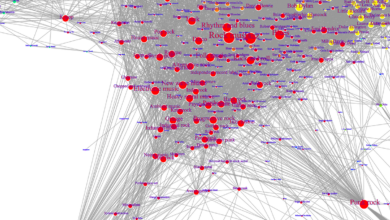13 Essential AI Skills for the Modern Workforce

In the age of artificial intelligence, mastering AI-related skills is non-negotiable for the modern workforce. We’ve gathered insights from Founders, CEOs, and other leading experts to share the essential AI competencies that have propelled their organizations forward. From mastering AI for data analysis to leveraging generative AI capabilities, here are the crucial thirteen skills these professionals emphasize for success in today’s digital landscape.
- Master AI for Data Analysis
- Optimize AI Tool Outputs
- Emphasize Data Literacy
- Craft Effective AI Prompts
- Refine Prompt Engineering Skills
- Form AI Teams with Revenue Insight
- Develop AI Fluency
- Cultivate AI Ethical Awareness
- Understand AI-Generated Insights
- Employ the RAFTTT Prompt Crafting Method
- Utilize AI Outputs for Productivity
- Tell a Story With Data Literacy
- Leverage Generative AI Capabilities
Master AI for Data Analysis
I believe that mastering the skill of utilizing AI for data analysis is crucial. At Tattoos AI, we leverage large language models to decode market trends and stay ahead of the game. For example, we’ve noticed an uptick in colorful tattoos among a specific demographic, and this has allowed us to tailor our marketing strategies accordingly.
Using AI has freed up my team from data analysis so they can focus on our targeted marketing strategies, driving sales and staying ahead of the industry.
Nick Berns
Founder, Tattoos AI
Optimize AI Tool Outputs
I believe that learning how to optimize the output of AI tools, editing it to be reader-friendly and accurate, is a critical skill set to learn. At Content at Scale, we produce high-quality, authoritative SEO content with proprietary AI tools that do all the real-time research, find the best facts for the topic, and put together the best content for a topic.
But it still takes a human touch to review the content and make sure it’s good. I have an acronym to help my team remember the steps: TAP (Take a look at the content, Add images/visuals/media, and Publish).
 Julia McCoy
Julia McCoy
President, Content at Scale
Emphasize Data Literacy
Data literacy is a vital AI-related skill for today’s workforce. Understanding how to read, analyze, and draw conclusions from data is critical in today’s data-driven society. This skill enables people to make informed decisions, spot trends, and handle difficult issues efficiently. Proficiency in data literacy has greatly benefited OpenAI by allowing us to better harness AI technology.
With a thorough grasp of data, our team can create and improve AI models, accurately analyze results, and innovate in a variety of fields, including natural language processing and computer vision. Finally, data literacy improves our ability to provide cutting-edge AI solutions and drive significant progress in the sector.
Moreover, our recent market analysis suggests that the generative AI market is witnessing significant growth, expected to increase at a rate of 33.2%. Artificial intelligence (AI) is expected to change the world economy, contributing an amazing $25.6 trillion. In the United States, 73% of businesses have already implemented AI, while 78% of legal occupations are being transformed by generative AI technologies.
Despite its prominence, there is a significant gap in AI literacy, with 84% of Americans lacking expertise in this field. AI’s rapid adoption necessitates reskilling for at least 20% of the enterprise workforce. By 2024, the demand for AI skills will be so high that 96% of companies believe individuals with AI experience will have a competitive advantage in the employment market.
 John Smith
John Smith
Research Analyst, Straits Research
Craft Effective AI Prompts
Knowing how to craft effective prompts to feed AI is essential. AI tools like ChatGPT can drastically speed up your workflows—but only if you know how to get the information you need from them. A bad AI prompt is going to equal a bad AI answer.
Here at GoSearch, we’ve hosted a Lunch-and-Learn where our resident AI expert shared best practices on AI prompts. Mastering this skill has really paid off for our team and has helped everyone speed up workflows.
 Alexa Franck
Alexa Franck
Sr. Content Marketing Manager, GoSearch
Refine Prompt Engineering Skills
One crucial AI-related skill for today’s workforce is prompt engineering. This skill involves not only crafting queries that effectively communicate tasks to AI but also refining these prompts to incorporate advanced techniques to help AI process and present solutions in a more logical and human-like manner. In our organization, a deep understanding of prompt engineering has been instrumental in deploying AI applications that are robust, scalable, and efficient.
For example, using chain-of-thought prompting techniques has allowed our development teams to enhance our AI’s ability to analyze complex data sets and generate nuanced insights, significantly improving the quality and reliability of the output. This level of sophistication in prompt engineering ensures that our AI-driven solutions perform consistently under varied real-world conditions, thereby boosting productivity and fostering innovation throughout our business.
 Lindsay Richman
Lindsay Richman
Product Manager, Innerverse
Form AI Teams with Revenue Insight
The AI skill that I’ve seen as most beneficial to our organization isn’t necessarily a skill, but an approach. And this approach is forming a team specifically dedicated to AI, that includes not only a technical expert but also someone who has a strong understanding of revenue.
Having this combination keeps balance in projects and ensures that anything that moves forward is technically feasible, creates a product that is forward-thinking, and, maybe most importantly, revenue-impacting.
 Sheena Miles
Sheena Miles
AI Implementation and Operations, NMI
Develop AI Fluency
At my professional work, the AI-related skill that is essential for the modern labor force is AI fluency. This skill is probably not just about understanding but also about the ability to communicate with, control, and make AI programs work for you. My company has become a new player in the game. It has made our employees stay ahead of the game, and they are able to adapt to the changing job landscape, a trend that AI is being increasingly used for.
During the course of this semester, we’ve been able to witness how AI proficiency can lead to a remarkable productivity increase. As an example, knowing how to work with generative AI, members of our team have improved their performance by 40%. This not only concerns the usage of AI tools but also the critical thinking when assessing AI outputs and exercising expert judgment. In the end, we got the better part of it by having enhanced quality of our work, innovation, and efficiency.
Additionally, an AI-fluent setting has opened up the possibilities of AI for personalized employee training, thus ensuring that our employees are well-prepared for the requirements of their jobs. It is a talent that I feel will be more necessary as AI redesigns the job structure.
 Chase Hughes
Chase Hughes
Founder, ProAI
Cultivate AI Ethical Awareness
I believe one of the most essential AI-related skills for the modern workforce is AI ethical awareness. While AI offers tremendous potential for innovation and efficiency, it also presents complex ethical challenges, such as bias in algorithms, privacy concerns, and potential job displacement.
At Webuters, fostering AI ethical awareness has been paramount. We’ve invested in educating our employees on the potential societal impacts of AI and the importance of designing and using AI systems responsibly.
Moreover, our focus on AI ethics has encouraged our teams to develop AI solutions that prioritize fairness, transparency, and inclusivity. This has led to the creation of products and services that are not only innovative but also aligned with our core values.
By cultivating AI ethical awareness within our workforce, we’ve ensured that our company remains at the forefront of technological advancement while upholding the highest ethical standards.
 Krishna Bhatt
Krishna Bhatt
Chief Executive Officer, Webuters Technologies
Understand AI-Generated Insights
One AI-related skill becoming increasingly essential for the modern workforce is the ability to interpret and make decisions based on AI-generated insights. This skill, often called AI literacy, encompasses understanding how AI tools function and critically assessing the data these tools use and the outputs they generate.
Cultivating AI literacy within a business has profound benefits. First, it empowers employees to integrate AI technologies effectively into their daily operations, enhancing productivity and efficiency. For example, AI-literate marketers can leverage predictive analytics to fine-tune campaigns, while supply chain managers can use AI-driven forecasts to optimize inventory management.
Not to mention, AI literacy helps mitigate the risks associated with AI implementation, such as biases in AI outputs and overreliance on automated decisions. By understanding the mechanisms behind AI applications, employees are better positioned to identify potential errors or ethical issues, ensuring that AI solutions are used responsibly and effectively.
Furthermore, AI literacy will become a cornerstone of corporate agility and innovation as AI permeates various business sectors. Employees skilled in AI can help drive the adoption of new technologies, ensuring that businesses remain competitive in an increasingly automated world. This skill set makes individual employees more valuable and enhances their organizations’ overall adaptability and resilience.
 Alex Goryachev
Alex Goryachev
AI & Iot Keynote Speaker, Alex Goryachev
Employ the RAFTTT Prompt Crafting Method
Crafting a workable prompt is an important AI skill, so you can get the results you want efficiently. I like to follow a method I call RAFTTT.
R – Role: State the role you want the AI to take.
A – Audience: State the audience for your results.
F – Format: What format should the result be in? (Report, email, summary, poem, bullet points, etc.)
T – Topic/Task: What do you want the AI to do?
T – Tone: What tone should the writing be in? (Professional, conversational, informative, relaxed, excited, etc.)
T – Technicalities: State any other details necessary.
Using a specific method like this ensures you remember all the necessary details to put into a prompt, thus improving the likelihood of getting the results you were looking for.
 Lynn Thomas
Lynn Thomas
Teacher Consultant of Elearning, Words Grow
Utilize AI Outputs for Productivity
One essential AI-related skill I believe the modern workforce should have is the ability to effectively utilize and interpret outputs from AI models to optimize workforce productivity. In our organization, mastering this skill has significantly benefited us. By leveraging AI tools, we’ve streamlined meetings and enhanced overall efficiency.
Understanding how to prompt AI models and interpret their responses has empowered us to extract valuable insights and automate routine tasks effectively. This proficiency has improved our decision-making processes and fostered a culture of innovation and adaptability within the organization. Ultimately, we can now fully leverage AI technologies, driving continuous improvement and growth, and staying ahead in today’s dynamic business terrain.
 Fehmida Merchant
Fehmida Merchant
L&D Consultant, NamanHR
Tell a Story With Data Literacy
As a senior data analyst, I’d say being good with data is super important these days. Think of it like being able to read a story, but the story is told through numbers and charts. In a shop, for example, knowing what customers like can help sell more stuff. Right now, only about 1 in 5 people are really good with data, and not many learned this in school. So, there’s a big chance for more people to get better at this.
One AI-related skill that is essential for the modern workforce is storytelling with data literacy. This encompasses the ability to understand, interpret, and work with data, which is crucial given the vast amounts of information generated and processed by AI systems.
In an organizational context, data literacy can significantly benefit decision-making processes. It allows teams to derive meaningful insights from data analytics, predict trends, and make informed choices that align with business objectives. For instance, in a retail company, data literacy can help analyze customer behavior patterns to tailor marketing strategies effectively, leading to increased sales and customer satisfaction.
Recent studies have shown that 21% of the global workforce are fully confident in their data literacy skills. This indicates that they can read, understand, question, and work with data effectively. On the other hand, this suggests that a significant majority, approximately 79%, may not be fully confident in their data literacy skills, highlighting a gap in this critical area for the modern workforce. Additionally, only 17% of United States workers report having spent a significant time during their formal education learning how to use data in the workplace, which may contribute to the overall lack of data literacy. It’s clear that as the reliance on data grows in the workplace, there is a substantial need for improvement in data literacy across the board.
As AI continues to evolve, with its value increasing from USD 92.7 billion in 2021 to an estimated USD 1596.86 billion by 2030, marking a CAGR of 37.20%, the ability to work alongside AI, understanding its capabilities and limitations, and using it as a tool to enhance human work rather than replace it, becomes increasingly valuable. This skill ensures that the workforce can adapt to and embrace AI technologies, fostering innovation and maintaining a competitive edge in the market.
 pragati gaikwad
pragati gaikwad
Senior Data Analyst, Straits Research
Leverage Generative AI Capabilities
By understanding what AI can do for the organization, explaining its advantages to the team becomes easier. It’s not about replacing jobs; it’s about making jobs more effective and efficient.
Take generative AI, a subset of artificial intelligence, for example. It has been gaining rapid popularity due to its ability to produce unique and creative outputs. Businesses such as TrustNet greatly benefit from utilizing generative AI, as it assists with tasks such as content creation, responding to emails, generating reports, and marketing campaigns. It also has the ability to generate a large volume of high-quality content quickly across various functions like Sales, Marketing, and Operations within the organization.
For its other functions, it also aids significantly when it comes to data analysis and automation. This helps streamline necessary workflows, which, when complemented with our team’s expertise, raises the level of excellence and precision we deliver as a cybersecurity and compliance provider.
 Trevor Horwitz
Trevor Horwitz
Ciso, TrustNet Inc.
Related Articles
Greg Grzesiak is an Entrepreneur-In-Residence and Columnist at Grit Daily. As CEO of Grzesiak Growth LLC, Greg dedicates his time to helping CEOs influencers and entrepreneurs make the appearances that will grow their following in their reach globally. Over the years he has built strong partnerships with high profile educators and influencers in Youtube and traditional finance space. Greg is a University of Florida graduate with years of experience in marketing and journalism.



